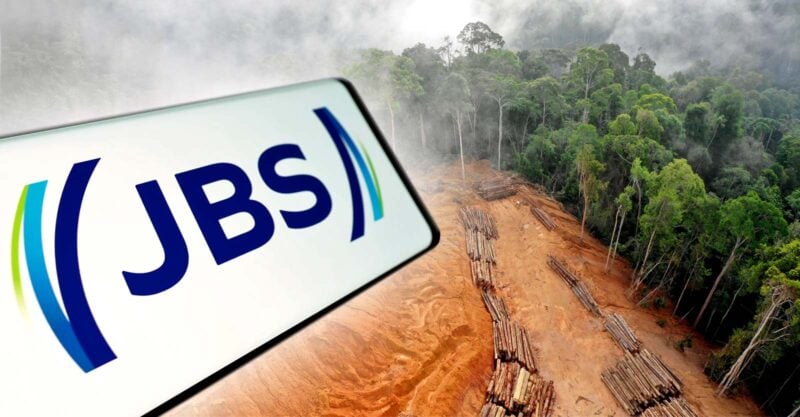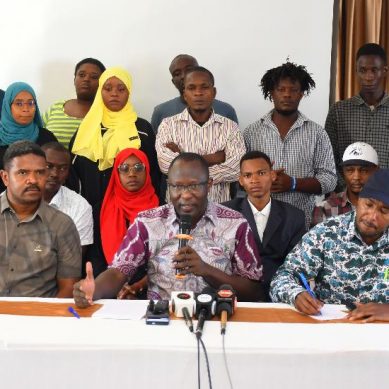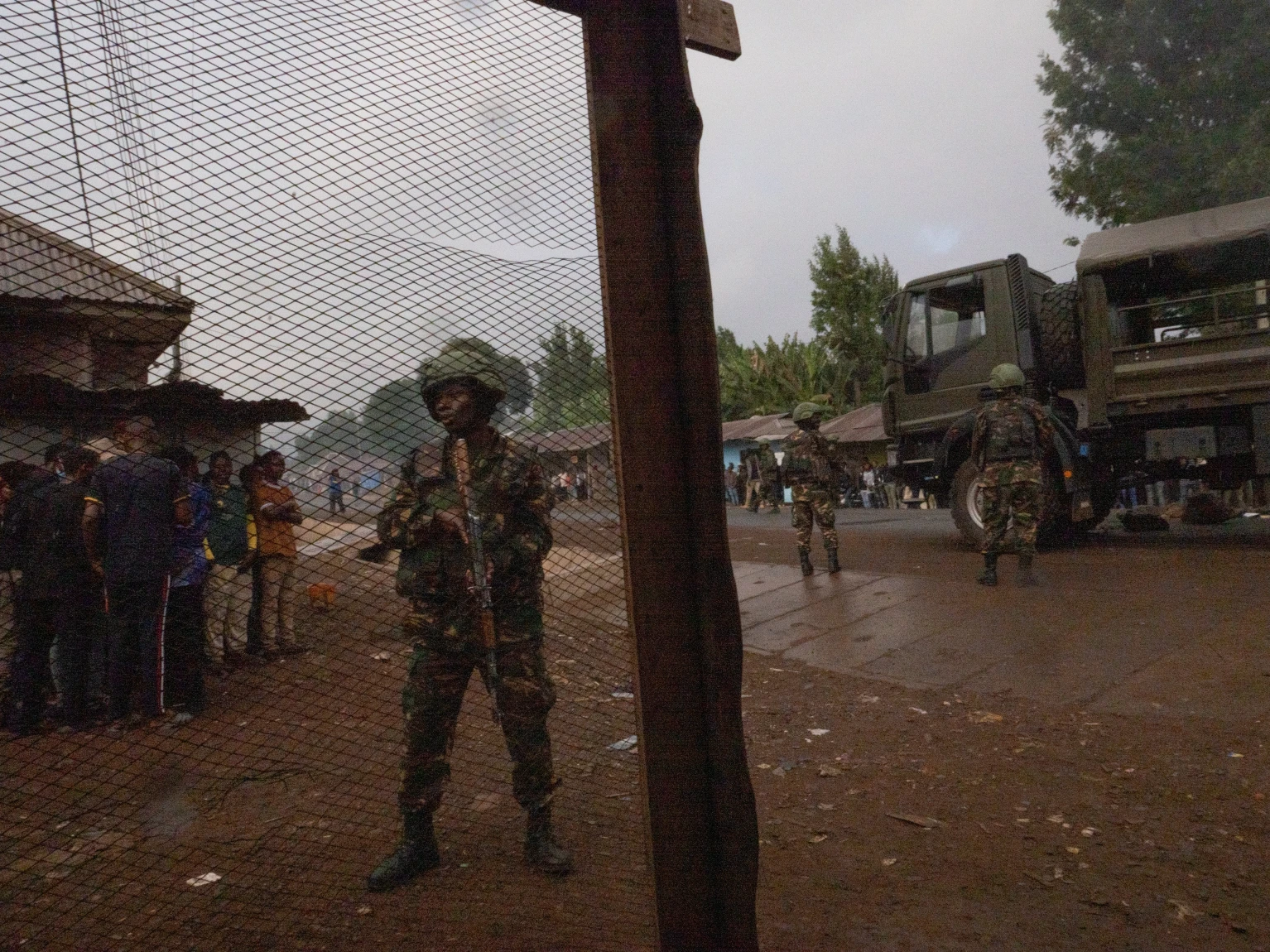
Brazilian meat giant JBS has long been linked to corruption, labour abuses, cattle laundering and Amazon deforestation. Yet the company is set to attend the COP30 climate talks in Belém this month, where it will likely trumpet its green credentials – a move that has sparked outrage over how major polluters are being welcomed as climate partners.
“This is the beginning of an exciting new chapter for JBS,” said Gilberto Tomazoni, CEO of the world’s largest meat company, when it floated on the New York Stock Exchange in June.
The moment crowned a remarkable rise for a family firm that was once a butcher’s shop and now slaughters tens of thousands of cattle a day. It’s a rise that has not been halted by the company’s countless (and very literal) trials and tribulations.
Set up in 1953 in the city of Anápolis by José Batista Sobrinho – from whose initials it takes its name – JBS now employs nearly a quarter of a million staff and has bases in 20 countries. Among its more famous brands are Seara, Just Bare and Pilgrim’s Pride.
But these friendly household labels belie some of the unsavoury episodes in the company’s history. It has been slapped with one of the biggest fines in global corporate history after a corruption scandal that implicated the then-president of Brazil.
It has been accused of workers’ rights abuses, implicated in child labour and has sold diseased meat to the public. And it has been linked to catastrophic deforestation in the Amazon rainforest, a vital buffer against the climate crisis.
Yet despite its exhaustive rap sheet, JBS is expected to attend the Conference of the Parties (COP) climate talks in Belém, Brazil, this month. Granted a global audience, the company is expected to trumpet its green credentials – and present evidence to challenge the prevailing view that its industry is worsening the climate crisis.
All of which begs the question: what exactly does a company have to do to be excluded from the top table?
We’ve been reporting on JBS for years. In 2019, our first major story lifted the lid on how its beef was driving the destruction of swathes of the Amazon. And earlier that year, when truck driver Alessandro Ale posted a photo on Facebook of his journey carrying 250 cattle across the southern Amazon rainforest, he would’ve had little inkling of the storm that would follow.
Ale’s pictures showed JBS’ logo adorning his truck and uniform. They also contained evidence of his route.
Unwittingly, he had provided journalists with some of the first hard evidence that the company was engaged in so-called “cattle laundering.” He was moving animals reared on a “dirty” farm – linked to deforestation – to a “clean” one, ahead of slaughter.
At the time, JBS told us it had investigated the evidence and found that the farm the cattle came from “was not shown to be within any embargoed area,” that it doesn’t purchase from farms involved in irregularities and that it “has always been at the forefront” of efforts to stamp out cattle laundering.
Five years on, JBS’ beef sourcing is once again in the spotlight. Greenpeace has launched an investigation that claims to show cattle laundering happening on the company’s watch as recently as this year.
Greenpeace even alleges that beef from a farm that illegally raised cattle on protected Indigenous land may even have made its way to overseas consumers.
The company said Greenpeace failed to demonstrate that the cattle in question had reached its slaughterhouses and that all purchases were made according to strict responsible sourcing policies. It said it has also blocked the farm in question.
The scandal that shook Brazil
Those scandals, though, were dwarfed by the remarkable corruption saga that rocked the Brazilian public in 2017.
It began with Operation Bullish, an ongoing police investigation, which found that JBS’ owner had bribed Brazilian officials in exchange for hundreds of millions in low-interest loans from a state-owned bank.
With their backs against the wall, JBS directors Joesley and Wesley Batista presented prosecutors with the ultimate bargaining chip: a secret recording of the then-president of Brazil, Michel Temer, apparently ordering the payment of hush money to a jailed politician.
The explosive tapes, made by Joesley, were published by a leading Brazilian newspaper. Angry crowds demanded Temer’s impeachment. And the brothers, who in this case were acting on behalf of the JBS parent company, J&F Investimentos, avoided jail time.
The investigation also uncovered footage of a Temer aide carrying a suitcase containing nearly $150,000, allegedly handed over by JBS exec Ricardo Saud. He later testified that the company had bribed more than 1,800 candidates from across the political spectrum, spending nearly $250 million. JBS was handed a colossal fine of $3.2 billion.
According to Reuters, JBS said the fines settled charges of two corruption probes involving the company and that the fine was being paid by the firm’s holding company. After the Temer revelations, Brazil’s stock market plunged nearly nine per cent – its worst collapse in nine years. It has become known as “Joesley Day” in financial circles.
A few months before Joesley Day, a JBS subsidiary had been one of a number of companies caught up in a major “dirty meat” scandal after police claimed inspectors had been bribed to allow the sale of rotten meat.
Police also investigated allegations that some meat firms had been changing the expiration date of products, using chemicals to mask their bad smell and injecting water into meat to increase its weight.
A TBIJ investigation two years later revealed that thousands of tons of chicken contaminated with salmonella, including some supplied by JBS, had been exported from Brazil to Europe, including up to a million birds to the UK.
We also revealed that some dirty meat rejected at the European Union (EU) border was then re-exported back to the country for sale to the Brazilian public – findings that provoked outrage in Brazil.
JBS said at the time that the Brazilian government’s inquiry into the “dirty meat” issue had not “called into question the quality standard of its products,” and that the firm had followed EU standards when exporting chicken to Europe.
Also in 2017, JBS in Brazil was found to have bought beef from a farm that was under investigation by Brazilian prosecutors for using workers in conditions described as being like “modern-day slavery.”
Documents said police had found men forced to live in inhumane and degrading conditions, with inadequate shelter, toilets or drinking water. JBS said it stopped buying beef from the farm in question following the raids.
The same year, activists claimed undercover researchers had seen chickens being punched and beaten with iron rods at a US farm and an abattoir contracted to Pilgrim’s Pride. And another animal rights group released a video that it said showed workers at an American JBS supplier beating piglets and ripping off their testicles.
JBS said it suspended shipments from that pig supplier and had started an investigation, and that “it did not condone or participate in any type of animal abuse.” Pilgrim’s Pride also launched an investigation, suspending supply from at least one of the farms.
Despite their company’s extensive rap sheet, JBS’ top executives enjoy seats at the very top tables. In 2023, they accompanied Brazil’s president, Luiz Inácio Lula da Silva, on a trade mission to China, where the company sends around a quarter of its exports.
After Lula visited Vietnam in March this year, JBS announced plans to invest $100 million in two vast new factories to process beef, pork and poultry in the country, mainly using raw materials imported from Brazil.
Only months earlier, the company earmarked $2.5 billion for the construction of six meatpacking plants in Nigeria. Similar moves to scale up production elsewhere in the world had already been announced, including a $50 million boost to quadruple chicken processing in Saudi Arabia.
Yet trouble has continued to stalk JBS behind the scenes. The New York Stock Exchange listing came against a backdrop of protracted calls for the company to be investigated, supported by a cross-party group of senators, including the now Secretary of State Marco Rubio.
And last year, Leticia James, New York’s attorney general, sued JBS for allegedly misleading consumers about their green claims. The case is ongoing.
At the start of this year, JBS agreed to take responsibility for its US supply chain and pay $4 million toward preventing child labour throughout the US.
This came after the US Department of Labour found that children were employed to do dangerous work and overnight shifts at JBS facilities across four states. And in February, it was announced JBS would pay some $83.5 million in the latest of a series of US price fixing settlements, this time connected to the beef market.
Two years ago, we revealed that more than 800 million trees had been cut down in the Amazon over just six years to meet foreign demand for Brazilian beef. The investigation estimated forest loss on thousands of ranches near more than 20 slaughterhouses owned by firms including JBS.
The company didn’t address its apparent role in the destruction but queried the methodology used to arrive at the deforestation figures. Among the farms linked to deforestation in that investigation was Fazenda Estrela do Aripuanã, where Ale parked his truck to take a photo back in 2019. (JBS stopped moving cattle along this route after TBIJ’s investigation.)
As delegates gather at COP30 in Brazil to promote sustainable agriculture, figures for tropical forest loss were down year-on-year, the Brazilian government announced last week. But the country’s rainforests and savannahs are still under threat.
Those present will get to hear plans for battling the climate crisis being outlined by the world’s biggest producer of beef. They’d be forgiven for taking it with a pinch of salt.
- A Tell Media report / Originally published by The Bureau of Investigative Journalism







